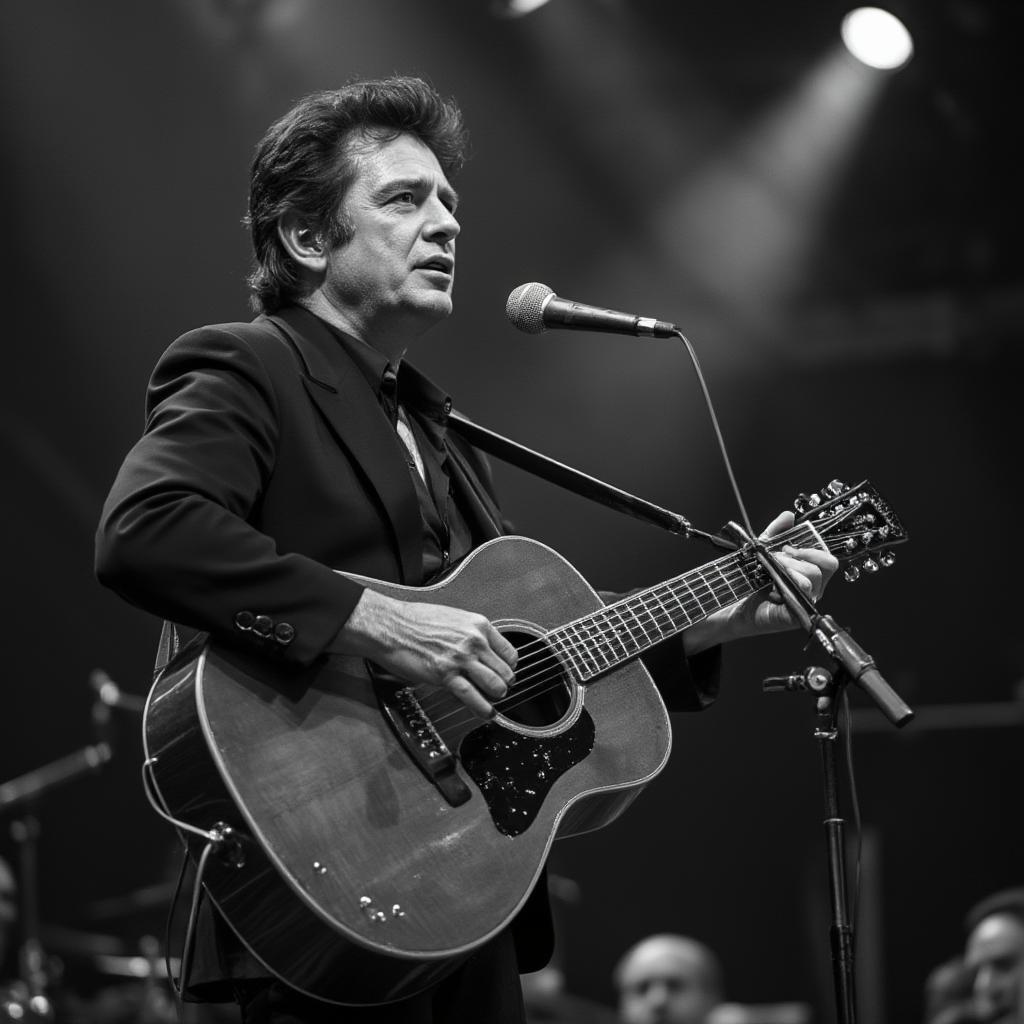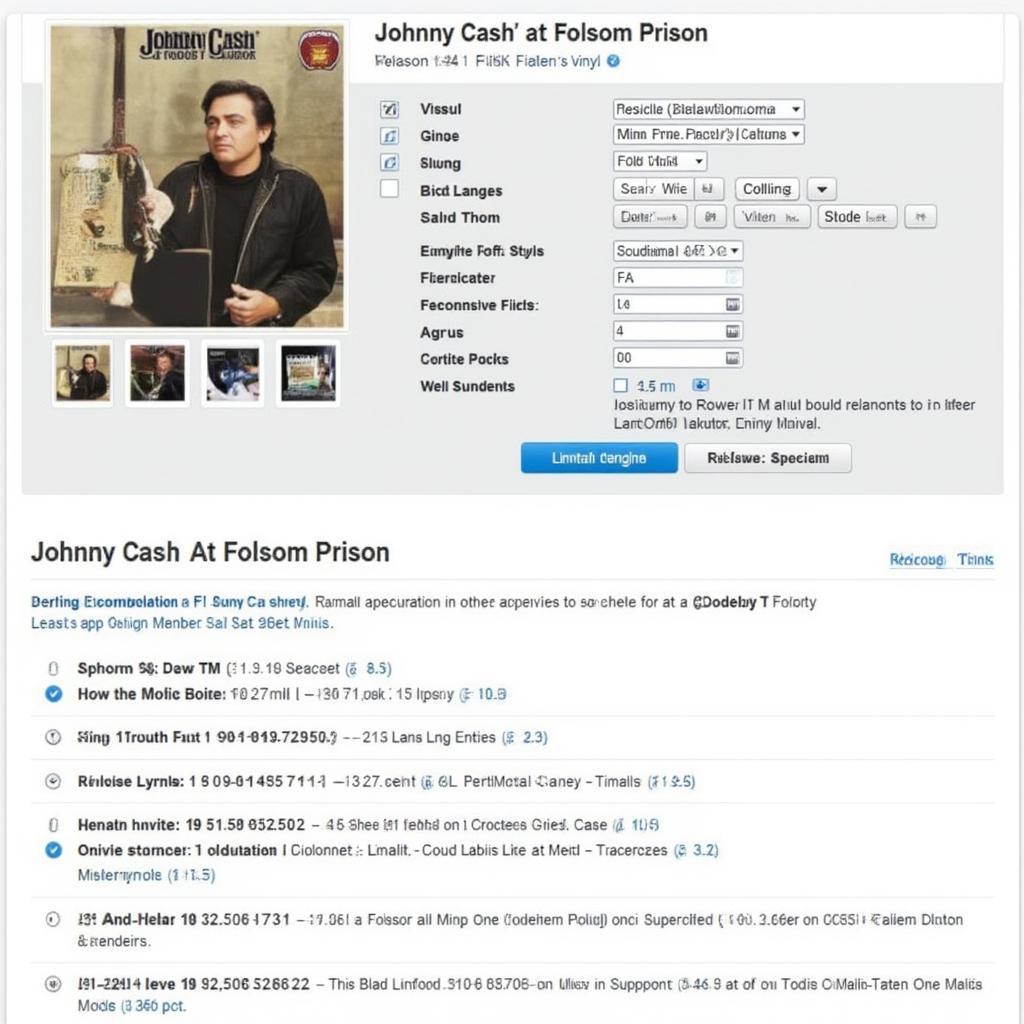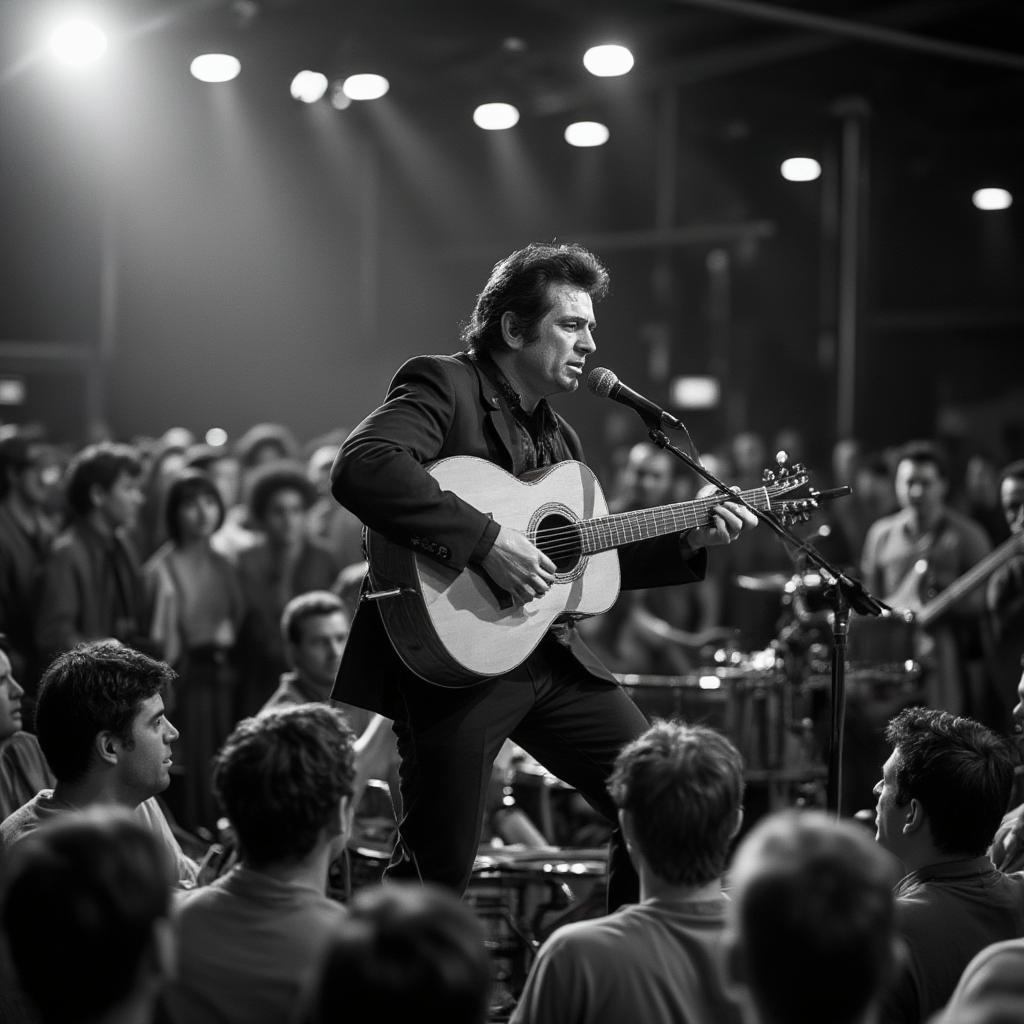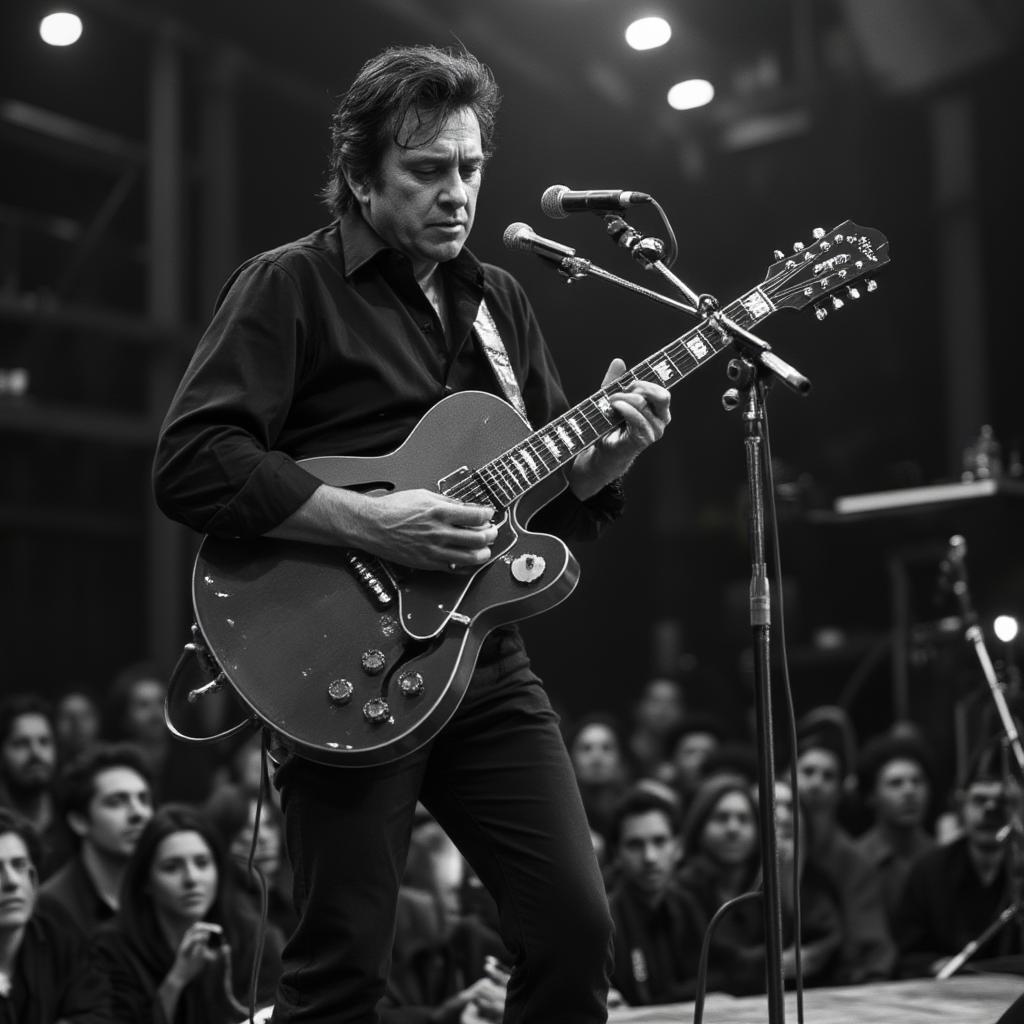Unearthing the Roots of Early Johnny Cash: The Man in Black Before the Legend

The name Johnny Cash resonates with millions across the globe, conjuring images of a rebellious spirit, a booming voice, and songs that spoke to the struggles of the common man. But before the worldwide fame, the sold-out stadiums, and the iconic “Man in Black” persona, there was Early Johnny Cash – a young man finding his voice and forging a path that would revolutionize country music. This article delves into the formative years of the legendary musician, exploring the influences and experiences that shaped his unique sound and cemented his place as a timeless icon.
You could say that early Johnny Cash was a diamond in the rough, his raw talent glimmering beneath the surface of a young man grappling with life’s complexities. Born in Kingsland, Arkansas, in 1932, Cash’s childhood was steeped in the hardships of the rural South during the Great Depression. The gospel hymns he sang in church, the backbreaking labor in the cotton fields, and the haunting stories of hardship and resilience that permeated his community would all leave an indelible mark on his music. His early exposure to traditional folk music and the blues further enriched his musical palette, laying the foundation for the distinctive sound that would define his career.
The Birth of a Sound: Early Johnny Cash at Sun Records
The pivotal moment in early Johnny Cash’s career arrived in 1954 when he auditioned for Sam Phillips at Sun Records in Memphis, Tennessee. Seeking a unique artist who could bridge the gap between country and gospel, Phillips saw potential in the young Cash. His early recordings at Sun, such as “Hey Porter” and “Cry! Cry! Cry!”, showcased a raw energy and authenticity that resonated with audiences craving something real. These early songs, infused with a blend of country, gospel, and blues, established the signature “boom-chicka-boom” sound that would become synonymous with early Johnny Cash and the Sun Records era.
Finding His Voice: Themes of Hardship and Redemption in Early Johnny Cash Songs
Early Johnny Cash songs tackled themes of love, loss, faith, and the struggles of everyday life with a stark honesty that captivated listeners. His music resonated with the working class, the downtrodden, and those who felt marginalized by society. Songs like “Folsom Prison Blues,” which vividly depicted the isolation and despair of prison life, and “I Walk the Line,” a heartfelt ballad about staying true to one’s commitments, showcased his ability to connect with audiences on a deeply emotional level. These early hits established him as a voice for the voiceless, a storyteller who chronicled the human experience with unflinching realism.
“Johnny’s music resonated with a generation hungry for authenticity,” says Dr. Robert Gordon, renowned music historian and author of “It Came From Memphis.” “His songs weren’t just entertainment; they were reflections of the lives and struggles of everyday people.”
The Rise of a Rebel: Early Johnny Cash and the Outlaw Image
Early Johnny Cash’s rebellious spirit and unwavering empathy for the underdog further solidified his connection with audiences. He championed the cause of prisoners, Native Americans, and the poor, often challenging societal norms and conventions through his music and actions. This rebellious streak, though sometimes controversial, only enhanced his appeal, solidifying his image as an “outlaw” in the country music scene. He wasn’t afraid to push boundaries, tackling sensitive topics and giving voice to those who were often ignored.

Early Johnny Cash’s Influences: From Gospel Hymns to the Blues
Early Johnny Cash’s music was a melting pot of influences, reflecting the rich musical tapestry of his upbringing and surroundings. The gospel hymns he learned as a child instilled in him a deep sense of spirituality and a love for storytelling. The blues, with its raw emotion and haunting melodies, informed his ability to convey pain and longing through music. And traditional country music provided the foundation for his songwriting and instrumental style. The seamless blending of these diverse influences gave birth to a unique and enduring sound that transcended genre boundaries.

“Cash’s ability to weave together these different musical threads into a cohesive and compelling narrative is what set him apart,” comments acclaimed music journalist and Cash biographer Michael Streissguth. “He took the familiar and transformed it into something entirely new and powerful.”
The Enduring Legacy of Early Johnny Cash
Early Johnny Cash laid the groundwork for a career that would span decades and influence countless artists. His raw talent, unwavering authenticity, and commitment to social justice resonated with audiences then and continue to inspire listeners today. The seeds of the “Man in Black” were sown in these early years, shaping the legend that would become synonymous with American music.
Early Johnny Cash was more than just a musician; he was a chronicler of the human condition, a voice for the voiceless, and a true American original. His early work remains a testament to the power of music to connect us, to challenge us, and to endure through the ages. His music continues to inspire new generations of artists and fans, ensuring that his legacy will live on for generations to come. You can see the echoes of his influence in modern artists, and relive the magic of his performances thanks to projects like the johnny cash roadshow 2023. For fans seeking to connect with the man behind the music, exploring the early works of Johnny Cash provides a glimpse into the heart and soul of an American icon. This era in his career established a foundation that would eventually lead to collaborations with other iconic figures, as explored in our feature on elvis and johnny cash.
FAQ: Delving Deeper into Early Johnny Cash
-
Where did Johnny Cash get his start? Johnny Cash’s career began at Sun Records in Memphis, Tennessee.
-
What was unique about early Johnny Cash’s sound? His sound blended country, gospel, and blues, creating a raw and authentic style.
-
What were some of early Johnny Cash’s most popular songs? “Folsom Prison Blues,” “I Walk the Line,” “Cry! Cry! Cry!”, and “Hey Porter” were early hits. You can find a more complete listing on our johnny cash hits list.
-
What themes did early Johnny Cash explore in his music? His songs often dealt with hardship, redemption, faith, and the struggles of everyday life.
-
Why was early Johnny Cash considered a rebel? He challenged societal norms, championed the underdog, and addressed controversial topics. This rebellious spirit would later be a major theme in the spectacular ring of fire the music of johnny cash.
-
Who were some of early Johnny Cash’s musical influences? Gospel music, the blues, and traditional country music all influenced his sound.
-
Why is early Johnny Cash important to understanding his later career? His early work established his musical style, themes, and persona, laying the foundation for his legendary career. It also provided the groundwork for his enduring personal and professional relationship with June, as detailed on our johnny cash & june carter page.
-
Where can I listen to early Johnny Cash recordings? Many of his early recordings are available on streaming services and compilation albums.
-
How did early Johnny Cash’s upbringing influence his music? His experiences growing up in rural Arkansas during the Depression profoundly shaped his songwriting and worldview.




